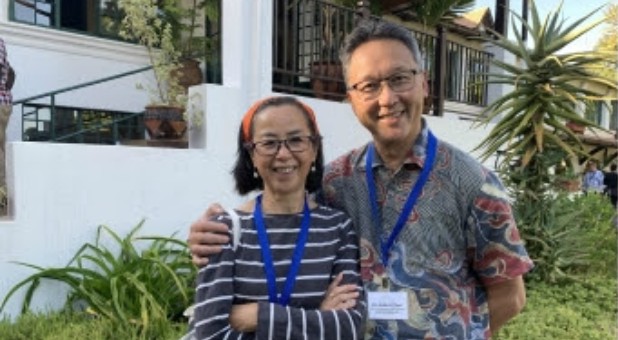I’ve always been interested in a mission to train surgeons.
So much so that my wife and I left Australia in 2015 to support the work of the Pan-African Academy of Christian Surgeon (PAACS) as their Program Director in Ethiopia. PAACS is an organization working in Africa to train and disciple African physicians as surgeons to take care of the poor and bring the message of God to others. Together, we packed our belongings, said goodbye to our friends and loved ones, and turned our attention to a surgical training program at Soddo Christian Hospital (SCH).
Right away, I was hit by the reality that trauma is an all too common occurrence in Africa—particularly where we were in Ethiopia. With road traffic injuries representing 60% of the traumas seen by the at SCH and half of the general surgery ward beds filled with people severely wounded—many with serious head injuries and in coma. We knew we were there to teach much more than surgery. We were there to create change.
We asked ourselves, “What if we focused on prevention, rather than trying to fix patients after the event?” This question was the stimulus for our Ethiopia team at PAACS to develop our own trauma registry and begin to better understand the problem. We knew that we could not manage what wasn’t measured.
In Ethiopia, as with much of the African continent, statistics related to road trauma injuries (RTI) were largely lacking in detail or wholly unavailable. Data held from the World Health Organization drew a stark contrast from the estimates of road related fatalities reported by Ethiopia’s Federal Police. In addition, we found there was much more at stake than one victim losing his or her ability to talk or walk in an accident. There is also a loss of their way of life, their livelihood and their independence. Often, trauma victims become dependent on others and enter a cycle of debt that impacts the entire family and community.
We saw our opportunity to make a difference by improving reporting and information and drawing a straight line to the solution.
Our observations identified many of the root causes leading trauma patients to us, including:
- Motorcycle helmet use is minimal.
- Most drivers are unlicensed.
- Pedestrians and bystanders are unsafe.
In June 2016, we created the first ever a comprehensive PAACS trauma database registering all patients admitted to SCH for the management of trauma. To date, more than 3,500 patients have been registered. Armed with credible data and information, we shared our data collections with the regional Police Commissioner and made the case for preventive action.
Our efforts were fruitful.
Within an hour, the regional police commissioner invited the PAACS team to address this problem to high-ranking officials from the regional police and a public forum where community leaders, a Speaker of the House and road transport authorities were present. Within three weeks, action steps had been taken; all motorcycle drivers were being pulled over for not wearing a helmet.
And we were successful. Our success was truly the health and well-being of others.
Dr. Douglas Lundy, Chair of the PAACS Board of Directors added: “prevention of injury is far more effective treatment. Although this may sound obvious, even the most developed nations in the world often miss the opportunity to prevent traumatic injuries. Dr. Chew’s experience shows what innovative thinking creatively applied can change an entire community.”
Our mission at PAACS isn’t to just train African physicians to become surgeons—it’s to think and act in ways that improve the long-term health and well-being of others. If our communities in the Pan-African region are a little bit healthier and safer as a result of PAACS, then I know that my gut instincts to follow my head and my heart to leave Australia were well timed.
PAACS continues its effort to strengthen the lives of others in any way we can. We start with training and discipling Africans, but once we are there, we seek real change.
Dr. Andrew Chew is the program director at PAACS’ Soddo Christian Hospital.
See an error in this article?
To contact us or to submit an article






















